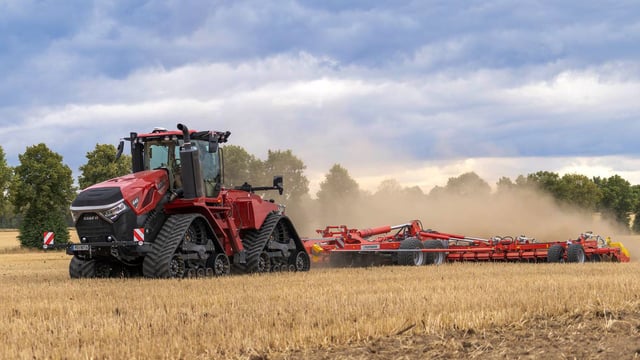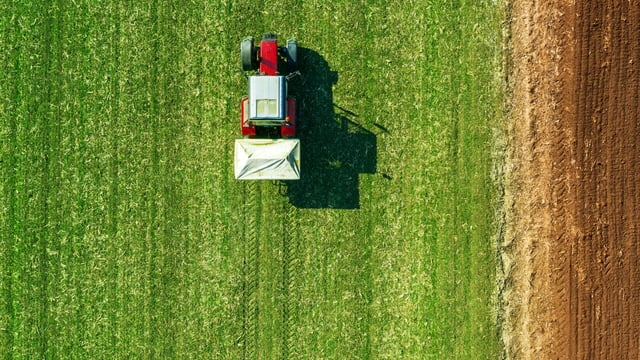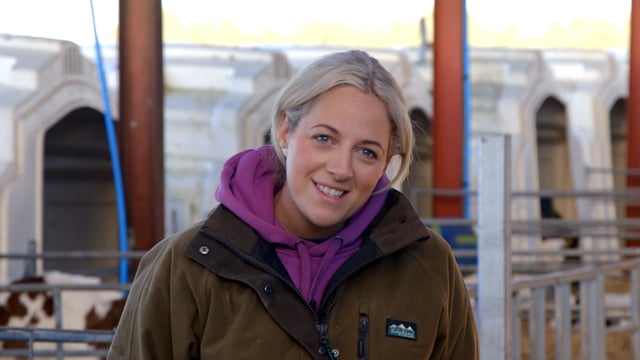Mercosur deal: What does it say about agri-food?
The ratification process for the controversial EU-Mercosur Trade Agreement is expected to get underway imminently.
It is understood that a tentative agenda of a meeting of the European Commission this week includes adoption of the agreement by the commission, at which point it will go the Council of the EU and the European Parliament.
This comes amid concerns that EU member states will not have the opportunity to individually ratify the agreement.
The official political agreement on a potential trade deal was arrived at in December of last year between the commission and the Mercosur bloc, which includes Argentina, Brazil, Paraguay and Uruguay.
The commission has said that the deal will "open unprecedented access to the countries of Mercosur for European farmers and food producers".
The Mercosur countries have been described as "growing and dynamic markets" but which currently have "high barriers to entry".
EU agri-food exports to Mercosur were worth €3.3 billion in 2024. The commission says that the agreement will boost those exports by eliminating high duties on key EU exports.
Currently, Mercosur tariffs for these exports can range from 10% for olive oil (€600 million exported in 2024) to up to 35% for wine (€238 million exported in 2024) and beverages other than wine (€259 million exported in 2024).
Tariffs on EU exports to Mercosur countries also currently apply on cheese (28%), milk powder (28%), infant formula (18%).
The agreement will also, according to the commission, protect EU products that are currently registered as geographic indication.
The agreement will prevent some 344 EU food and drink products from being imitated within Mercosur countries.
For EU exporters of animal-based products, the agreement will, according to the commission, reduce restrictions for exporters due to animal health issues.
In the past, all EU exports could be banned in cases of disease in certain regions. The agreement will allow non-affected EU zones to export despite a disease present in some areas within the EU.
Imports
However, it is the imports of Mercosur products into the EU which has caused the most controversy among some EU countries - especially Ireland and France - as well as farm organisations.
According to the commission, the agreement grants "very limited access" to the EU market for imports of agri-food products.
The commission claims that for "sensitive products" (which is said to include beef, poultry or sugar in particular) access to the EU market will be "permanently limited" through quotas.
The commission also says that a bilateral safeguard clause can be applied in case increased imports from Mercosur cause "serious injury" to the relevant EU sectors. This safeguard can include imports that are under tariff rate quotas.
The beef aspect of the deal has proven the most controversial. The commission claims that the deal will have "limited impact" on the EU beef market, and that it will not generate further deforestation in Mercosur countries.
While the agreement does not give duty free access to Mercosur beef to enter the EU market, it will allow 99,000t to enter the market with a lower duty of 7.5%. When fully implemented, the quota will consist of 55% fresh or chilled beef and 45% frozen beef.
According to the commission, the total volume that will be under the 7.5% rate equates to only 1.5% of total European beef production.
The commission also says 99,000t only accounts for 0.6% of Mercosur's total beef production of 15.5 million tonnes (according to 2023 figures).
On poultry, the EU will allow a quota of 180,000t of poultry to be imported duty-free. This volume will be phased-in over five years.
According to the commission, this figure represents 1.3% of total EU poultry production. The commission also said that EU poultry consumption is projected to increase every year by a similar amount as the new preferential quota for Mercosur poultry.





